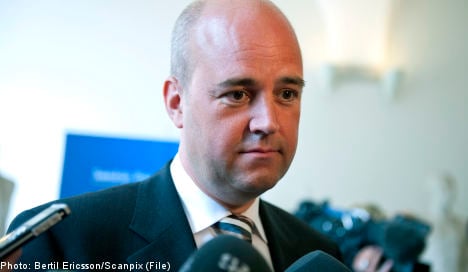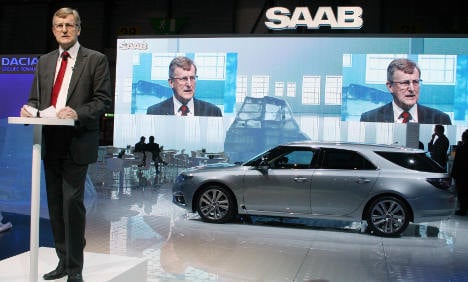“I am not prepared to put Sweden in hock and act as a venture capitalist for the well-heeled,” Reinfeldt said in a press conference on Wednesday.
Reinfeldt was backed up by the enterprise minister, Maud Olofsson, in rejecting Koenigsegg Group’s call for a bridging loan to make up the reported 3 billion kronor ($419 million) gap in their financing to complete the deal.
The Local reported on Tuesday that ailing US car firm General Motors had confirmed the signing of a stock purchase agreement with the Koenigsegg Group regarding the sale of Saab Automobile to the Swedish-led consortium.
With reports emerging that there remained significant financial obstacles to be overcome before completing the deal, Christian von Koenigsegg called on the Swedish state to provide the loans.
“We see this as a deal between three parties; General Motors, Koenigsegg Group and the Swedish state,” he said to the Svenska Dagbladet (SvD) newspaper.
Reinfeldt reacted angrily when the subject came up at a press conference on Wednesday.
“There are those trying to change the way companies should be run in Sweden. Firstly, the buyer stumps up insufficient funds. Then the venture capital and credit markets…decline to join in. And then the state is left there as the largest venture capitalist of them all, who with welfare money should go in and assume the risk that no one else wants to take,” Reinfeldt said.
The opposition Social Democrats have by way of a response accused the government of inaction.
“The government has, for ideological reasons, decided not to act. In other countries the state exerts itself to save jobs,” party spokesperson Tomas Eneroth said, who claimed that 12,000 jobs were on the line.




 Please whitelist us to continue reading.
Please whitelist us to continue reading.
Member comments